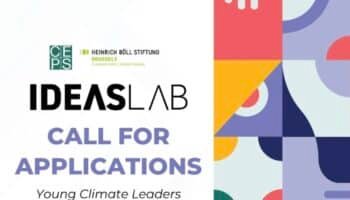Applications are open for EDUFI Regional Teachers Initiative. The Finnish National Agency for Education (EDUFI) announces a call for research proposals from public or private non-profit organizations established in Europe or Africa that operate within a consortium of European and African organizations. The call is part of the Regional Teachers Initiative for Africa. The initiative is part of the EU’s Global Gateway investments.
The Regional Teachers Initiative for Africa (RTIA) aims to support African countries to improve the education and training of teachers and to make sure that their schools have enough qualified teachers. This will be achieved through policy support in areas of teacher governance and teacher professional development and will contribute to delivering quality education for all.
The initiative contributes to regional and national objectives by supporting and complementing national education and teacher reforms, offering opportunities for countries to work together, supporting partnerships and peer learning for teachers in the region, and to work with Europe.
EDUFI Regional Teachers Initiative Aims
The overall aim of this call is to generate deeper understanding for policy and practice relevant recommendations on how teacher training and teacher wellbeing at work can be made more effective in Sub-Saharan Africa, ultimately aiming to reduce teacher shortage and attrition in Sub-Saharan Africa. More specifically, the call aims to:
- generate new evidence on effective teacher policies and practices to address challenges related to teacher governance, teacher preparation and teaching, and the attractiveness of the teaching profession in early childhood education, primary and/or lower secondary education in Sub-Saharan Africa;
- strengthen research capacities in Sub-Saharan Africa;
- disseminate findings so that the evidence produced can inform policy formulation, program design and implementation in Sub-Saharan Africa;
- encourage partnerships of universities and research institutions both within Africa and between Africa and Europe.
EDUFI Regional Teachers Initiative Themes
To address the challenge, two main research themes have been identified.
Theme 1: Teacher wellbeing at work and teacher retention, shortage, and attrition
Many factors affect teacher wellbeing, including financial, physical, and social aspects. In this call, the focus is on work-related wellbeing, viewed as a key factor associated with better performance in the workplace and ultimately, improved student learning. The complexities of policy implementation and the challenges of educational reform are also visible in the work of teachers, if not coupled with sufficient resources and support. Despite the multiplicity of studies, a holistic picture based on the relationships between education governance, teacher welfare policies, retention and attrition is only partially established.
Focus areas under theme 1:
- Educational reforms and resources
- This focus area centers around the formulation and implementation of educational reforms affecting teacher training and teacher working conditions (e.g., teacher recruitment, salary levels, deployment, distribution, professional development, learning environments in schools, decentralization of education administration), how these reforms are led at national and school levels and which incentives are most effective in attracting and retaining teachers in different contexts. Policy implementation is considered crucial for improving teacher motivation and job satisfaction: however, it is dependent on the availability, distribution, and accessibility of resources.
- School leadership and management
- Effective school leadership and management can impact the school environment in many ways and ensure teacher wellbeing, job satisfaction, teacher professional development and a good work-life balance. A good and well-functioning school leadership is in a key position when improving working conditions in schools.
- School leaders can also promote consultative decision-making and an equitable school culture that can improve teachers’ sense of professionalism and agency through empowering teachers with greater autonomy, increasing their job satisfaction, motivation, and retention.
- Teachers’ working conditions, motivation and satisfaction with work
- Teacher wellbeing should also be studied from the perspectives of teachers – how teachers perceive their working conditions and what can be done to support them in the classroom. This would require a bottom-up approach, which focuses on the classroom context, teaching practices and support provided to teachers. Many of the issues taking place in school and the classroom affect teacher job satisfaction, and well-functioning support mechanisms can further teacher retention, their motivation and human capital. The support can come in many forms, among others through school leadership and management, mentoring, peer support, larger community around teachers and in the form of professional development.
- Theme 1: Research objective
- The research aims to provide valuable insights into the most effective policies and incentives for increasing teacher wellbeing at work and to retain teachers. These can inform policy decisions at local and national levels and lead to the development of policies and practices that create more supportive and attractive working conditions for teachers. A successful uptake of the research is anticipated to have a significant impact on reducing teacher shortages and/or ensuring the balanced distribution of teachers, and/or identifying factors for improving teacher job satisfaction, and/or implementing effective recruitment and/or retention strategies to attract and retain more qualified teachers.
Theme 2: Teacher professional development
In this call, teacher professional development (TDP) refers to pre- and in-service training as well as the training during the entire career of a teacher. The importance of TDP has been emphasized in various global reports, including UNESCO’s Global Education Monitoring (GEM) Report 2020 and the Teacher Policy Development Guide (2019). These reports highlight the need for continuous, context-specific, and inclusive professional development to address the diverse needs of students, especially in resource-limited settings.
Focus areas under theme 2:
Teacher education in pre-service programs play a crucial role in shaping the effectiveness and adaptability of future educators. Recent studies have identified three key areas being important for the success of these programs. These areas are therefore the focus areas under this theme:
- Pedagogical innovations and curriculum development in teacher education programs:
The landscape of teacher education is evolving, driven by the imperative to adapt curricula to the demands of modern education systems and societal expectations. Recent studies underscore the necessity of ongoing revisions to teacher education programs to remain relevant and effective. Key research findings indicate three areas of attention:
- the alignment of curricula with contemporary educational needs and societal norms,
- the integration of innovative pedagogies and critical perspectives, and
- the bridging of gaps between academic curriculum content and the practical competencies required in the educational field.
- Inclusiveness in Teacher Professional Development
- Studies conducted across several African countries highlight the importance of flexible and inclusive teaching methods, the integration of technology and innovative practices and the necessity of reflective and collaborative approaches for addressing diverse student needs for improving the learning outcomes. Teacher professional development is crucial for addressing this issue and providing tools for teachers to respond to this challenge. Furthermore, the studies underscore the importance of cultural and linguistic integration in teacher education, but there is a gap in research on how teacher education programs can systematically incorporate local cultural knowledge and linguistic diversity into their curricula. In many African countries, particular focus should be paid on bilingual education, providing the possibilities for students to get teaching in their mother tongue.
- Mentorship in teacher education
- Professional development and options for professional growth are crucial for maintaining teacher motivation and enhancing their efficacy in the profession. Teacher educators play a pivotal role in shaping the future of education through their influence on pre-service and in-service teachers. Their responsibilities extend beyond mere instruction to encompass leadership, mentorship, curriculum assessment, and the navigation of socio-economic challenges that affect the educational landscape.
Theme 2: Research objective
- The call will invite research on context-specific and culturally relevant Teacher Professional Development programs. The objective of the research is to provide deeper understanding on aims, potentiality, and implementation methods of TPD and how to ensure its sustainability and adaptability to changing educational needs and cultural contexts. Ultimately, based on research evidence, the aim is having evidence that can be used to develop TPD strategies and programs that provide equitable possibilities to teacher professional development.
Funding Information
Any request for a grant under this call for proposals must lay between the following minimum and maximum amounts:
- Minimum amount: €400.000
- Maximum amount: €800.000
Duration
The term of a project may not exceed 18 months, and it shall be completed by 31 August 2026.
Expectations From the Projects
- Linkages to education policy priorities and key stakeholders
Proposals need to include plans on how to ensure that the research is policy and practice relevant and how the results of the research will be disseminated. The policy and practice relevance can be demonstrated through showing clear links with e.g. education policy priorities. The dissemination plans should also include a description of the engagement of key stakeholders to ensure that the research is relevant and positioned for use in policy and practice, including actors such as ministries of education or teacher training colleges.
- High-quality research for development
Funded projects will be expected to build knowledge, and evidence, and mobilize knowledge for policy and practice. The studies will be expected to meet the quality criteria of international academic research by being methodologically rigorous, original, and relevant. They must be ethically sound, and when relevant, address gender equality and inclusion related issues. More detailed on the expectations can be found in the research template.
- Equal partnerships and capacity building
The projects are expected to promote equal partnerships and cooperation between the partners applying for funding and to increase ownership of the projects and their results in Africa and by the African partners. This can be demonstrated through the division of responsibilities between the partners and the research staff, the internal funding arrangements, and the leadership arrangements of the project or support provided to the African partners to strengthen their capacity in conducting research.
- Regional approach
The projects are expected to have a regional approach in their proposals. This can be demonstrated e.g. via consortium arrangements between European and African organizations, enhancing cooperation between Europe and Africa, or via consortia that consist of partners in several African countries, aiming for a regional impact in Sub-Saharan Africa.
- RTIA Regional event in Africa
The Facility for the Regional Teachers Initiative for Africa will organize a high-level knowledge sharing event in Africa in spring 2026 (venue not yet decided). The projects funded by this research call are invited to present their work in that event. RTIA will cover the costs of one participant from each project to the event, but it is recommended that the projects will budget own funding to provide more staff to participate in the event, up to 3 persons from each project.
Eligibility Criteria for EDUFI Regional Teachers Initiative
Lead applicant
- To be eligible for grants, the lead applicant must satisfy the following conditions:
- be a legal person; and
- be effectively established in either Europe or in an African country (establishment is determined on the basis of the organization’s articles of association which must show that the organization has been founded under an act of law of the country in question and that its registered office is located in an eligible country). In this regard, any legal entity registered locally or acting under a “memorandum of understanding” is not eligible; and
- be a public actor (a 100% public entity, with no private capital) or be a private non-profit actor (e.g., universities, universities of applied sciences, research institutes, I/NGOs, CSOs, trade unions, network secretariats, associations, governmental research institutes or departments); and
- be directly responsible for the preparation and management of the project with the co applicant(s) and not be acting as an intermediary; and
- have already managed at least one grant (of public funds) that has already ended (not longer than five years ago) and that amounts to 50% of the amount applied for; and
- dispose of financial statements certified by an independent body (audit or statutory commissioner). Those statements must not be older than 2 years.
Co-applicants
- The co-applicants shall participate in the implementation of the project, and the costs that they incur shall be eligible in the same way as those incurred by the applicant.
- The co-applicants must satisfy the eligibility criteria which apply to the lead applicant itself, except that:
- they do not need to prove that they have already managed a grant amounting to 50% of the amount applied for.
How To Apply for EDUFI Regional Teachers Initiative
Click Here to Apply and for more
Application Deadline: 25 November 2024
Elevate Your Business With Our Expert Services!







